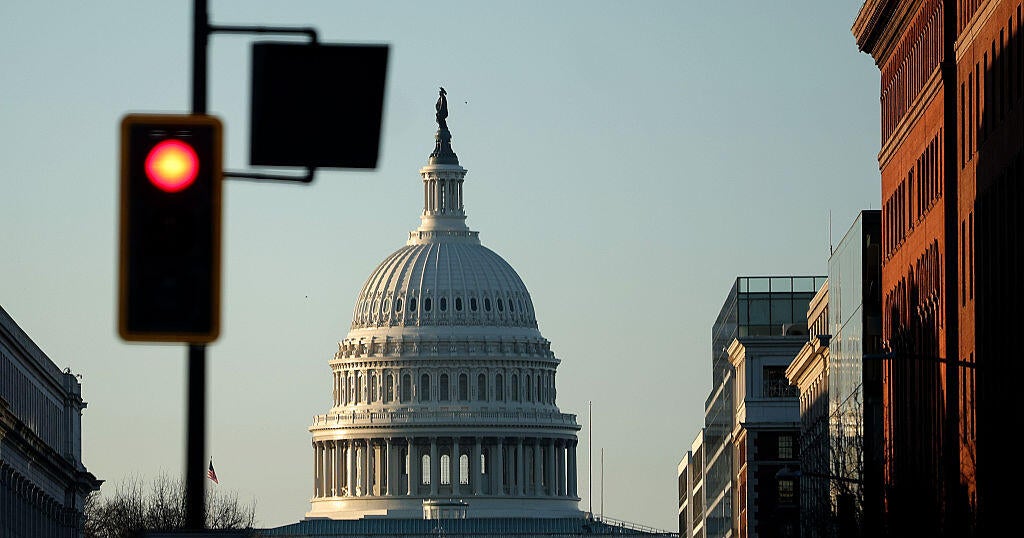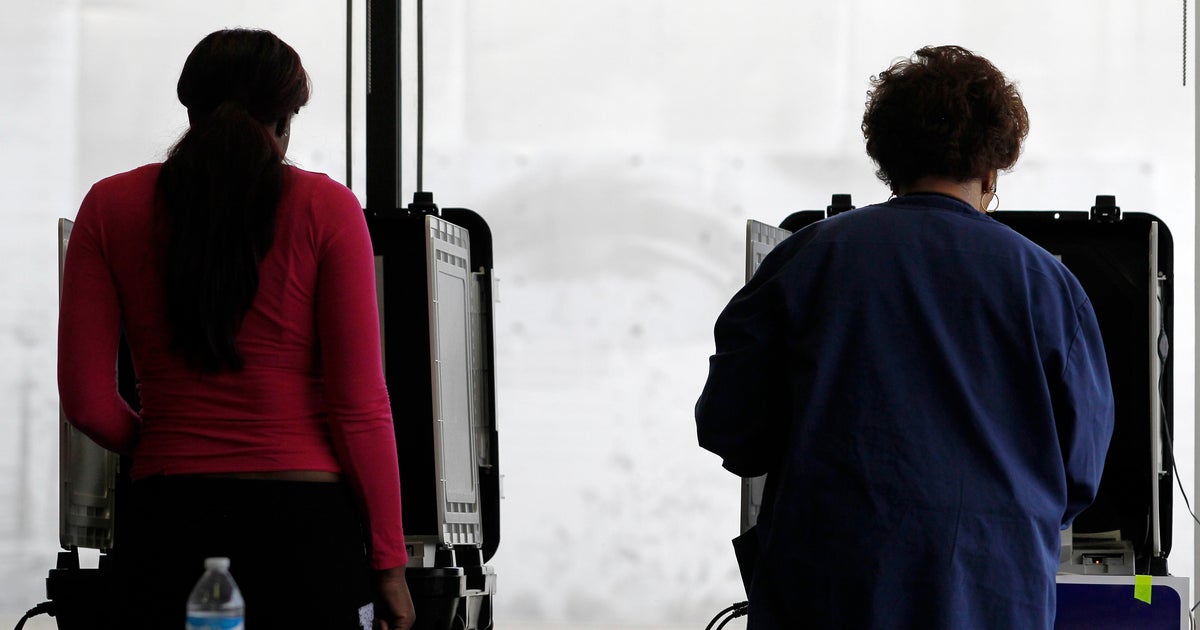Midterm Democratic Sweep In California Raises GOP Suspicions
SACRAMENTO (CBS SF / AP) — A combination of recent changes in California's election rules have lengthened the ballot-counting process across the state, and upended traditional voting patterns in a year that Democrats captured a string of U.S. House seats in the state.
Suspicious Republicans have pointed a finger at the state's dominant Democratic Party, suggesting the changes intentionally left Republicans at a disadvantage.
Whether Democrats have a clear edge is debatable. What's not is that vote counts in California now routinely stretch long beyond Election Day. A stunning five million ballots, or more than 40 percent of the overall total, were counted after Nov. 6. Some counties still are tabulating ballots.
The stream of later-counted ballots strongly favored Democrats, reversing what initially looked like winning margins for Republican candidates in high-profile House races.
One of those races wan in the East Bay's 16th Assembly District, which covers parts of Alameda and Contra Costa Counties. Incumbent Republican Catherine Baker led Democrat Rebecca Bauer-Kahan on election night, but was propelled to victory more than a week later on a surge of mail-in ballots.
In the former GOP stronghold of Orange County, Republican Rep. Mimi Walters ended election night with a 6,200-vote lead. But Democrat Katie Porter swamped Walters as the vote count continued, winning 58 percent of those tallied after Election Day on her way to defeating the two-term incumbent in the 45th District.
In was a similar case in the neighboring 39th District, where Republican Young Kim was hoping to become the first Korean-American woman elected to Congress. But her healthy election-night edge over Democrat Gil Cisneros vanished when Cisneros claimed 56 percent of the later votes on his way to taking the seat long held by retiring Republican Rep. Ed Royce.
Heading into Election Day Democrats had their sights on seven GOP-held seats in California. They have won six and their candidate in the seventh has declared victory as his margin increased with vote updates this week.
When the new Congress convenes Democrats expect to have 46 of California's 53 seats. The GOP will have no members in Orange County, long considered conservative holy ground, and also lost their last foothold in Los Angeles County.
Republican House Speaker Paul Ryan on Thursday described California's election system as "bizarre" in an interview with The Washington Post. Shawn Steel, a member of the Republican National Committee who lives in Orange County, wrote in The Washington Times that "Democrats know it's easier to erode voter integrity laws than to stuff ballot boxes."
Republicans zeroed in on a change in state law that lets voters allow anyone to drop off their absentee ballot, rather than a family member as previously required. That has opened the door to what they call "ballot harvesting" by campaign operatives.
Fred Whitaker, who heads the Orange County GOP, said in an email that an unprecedented number of ballots dropped off on Election Day in the county — more than 250,000 — was "a direct result of ballot harvesting ... that directly caused the switch from being ahead on election night to losing two weeks later."
Democrats scoff at the suggestion of a grand scheme to skew the vote in a left-leaning state where Democrats hold every statewide office, supermajorities in both chambers of the Legislature and a 3.7-million edge in voter registrations.
Longtime Democratic consultant Bill Carrick said Republicans, despite their losses, have yet to accept that "nobody likes what they are selling."
Secretary of State Alex Padilla also dismissed suggestions of a political slant to the state's policies.
"Every eligible citizen should be able to easily register to vote ... and cast their ballot and have their vote counted," he said. "That's what's driven the policies that are in place."
As for the weeks of vote-counting, Padilla said it simply takes time to make sure every ballot is tallied in a state with 58 counties and 20 million registered voters.
California has for many elections counted millions of votes after Election Day. There were mostly late-arriving absentee ballots and provisional ballots, which are filled out at polling places when a voter's eligibility cannot be verified at the time.
From 2010 to 2014, election officials counted between 25 percent and 30 percent of the state's votes in the days and weeks after Election Day. In 2016, the number spiked to more than 36 percent. So far this year, 42 percent of the state's votes have been counted since Nov. 6.
In recent years, California has taken steps intended to encourage voter participation that have had the effect of extending the time needed to count ballots. In addition to who can drop off ballots, there are these provisions:
—Mail-in ballots can arrive up to three business days after Election Day and still be counted, provided they are postmarked on or before Election Day.
—California provides broad leeway to use provisional ballots at polling places, such as when a voter ends up in the wrong precinct or loses a mail-in ballot. After they are submitted, those provisional ballots must be verified.
—When a voter's signature on a mail ballot doesn't match records, the voter must be notified and given time to fix it.
Data compiled by the nonpartisan research firm Political Data Inc. underscores that Republicans usually vote first and Democrats later.
The timing matters because California counts absentee ballots in the order they are received. Votes that arrive first get counted first, while those that get dropped off on Election Day get counted days and weeks later.
Early voters, typically white, conservative homeowners, "know where they keep their stamps," said Political Data's Paul Mitchell, alluding to the state's growing preference for mail-in ballots, which now account for most ballots.
Later voters tend to be a more diverse group that includes more young people and renters who might have lost track of their registration, meaning they fill out provisional ballots at polling places that must be reviewed after Election Day.
As for their politics, those younger, mobile voters are frequently independents and more likely to be liberal-minded, Mitchell said.
Statewide, Democrats received a big boost from later votes.
Gov.-elect Gavin Newsom won 59 percent of the votes counted on Election Day and 65 percent of the five million votes counted since then.
In California's farm belt, Republican Rep. David Valadao had a lead of more than 7 percentage points over Democrat T.J. Cox on Election Day, with double-digit leads in three of the four counties that make up the 21st District. But Cox declared victory this week after winning 56 percent of the votes counted after Election Day.
The Associated Press had declared Valadao the winner on election night. However, the AP retracted its call on Monday, after Cox took the lead.
AP deputy managing editor David Scott said the organization is looking closely at the changes in how California votes as the news cooperative prepares for the 2020 elections.
"Any time we make a mistake, we spend a lot of time looking at the reasons why. We'll do the same thing here," Scott said.
© Copyright 2018 CBS Broadcasting Inc. All Rights Reserved. The Associated Press contributed to this report.







